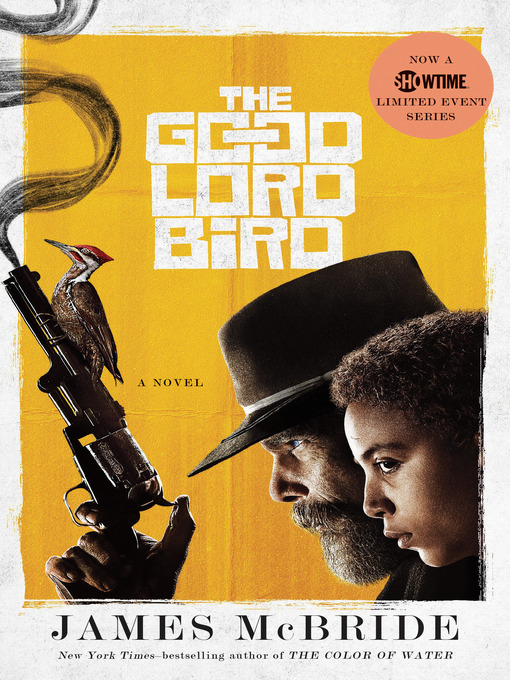1 of 1 copy available
1 of 1 copy available
Winner of the National Book Award for Fiction
From the bestselling author of The Heaven & Earth Grocery Store, Deacon King Kong (an Oprah Book Club pick) and The Color of Water comes the story of a young boy born a slave who joins John Brown’s antislavery crusade—and who must pass as a girl to survive.
Henry Shackleford is a young slave living in the Kansas Territory in 1856—a battleground between anti- and pro-slavery forces—when legendary abolitionist John Brown arrives. When an argument between Brown and Henry's master turns violent, Henry is forced to leave town—along with Brown, who believes Henry to be a girl and his good luck charm.
Over the ensuing months, Henry, whom Brown nicknames Little Onion, conceals his true identity to stay alive. Eventually Brown sweeps him into the historic raid on Harpers Ferry in 1859—one of the great catalysts for the Civil War. An absorbing mixture of history and imagination, and told with McBride's meticulous eye for detail and character, The Good Lord Bird is both a rousing adventure and a moving exploration of identity and survival.
-
Creators
-
Publisher
-
Awards
-
Release date
August 20, 2013 -
Formats
-
Kindle Book
-
OverDrive Read
- ISBN: 9781101616185
-
EPUB ebook
- ISBN: 9781101616185
- File size: 2018 KB
-
-
Languages
- English
-
Reviews

Loading
Formats
- Kindle Book
- OverDrive Read
- EPUB ebook
Languages
- English
Loading
Why is availability limited?
×Availability can change throughout the month based on the library's budget. You can still place a hold on the title, and your hold will be automatically filled as soon as the title is available again.
The Kindle Book format for this title is not supported on:
×Read-along ebook
×The OverDrive Read format of this ebook has professional narration that plays while you read in your browser. Learn more here.
